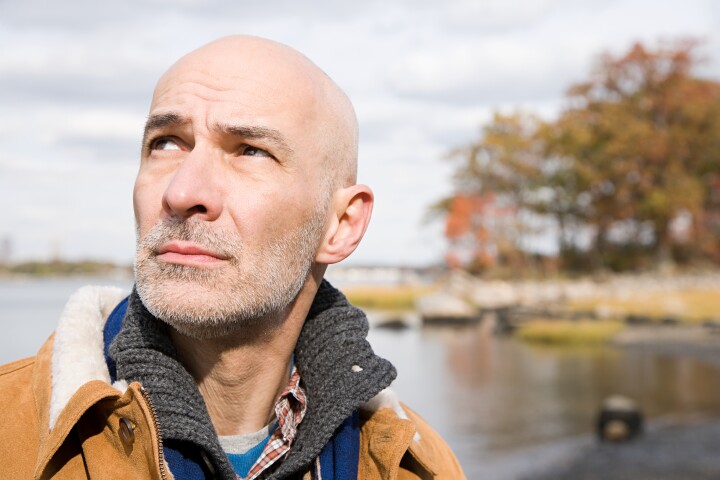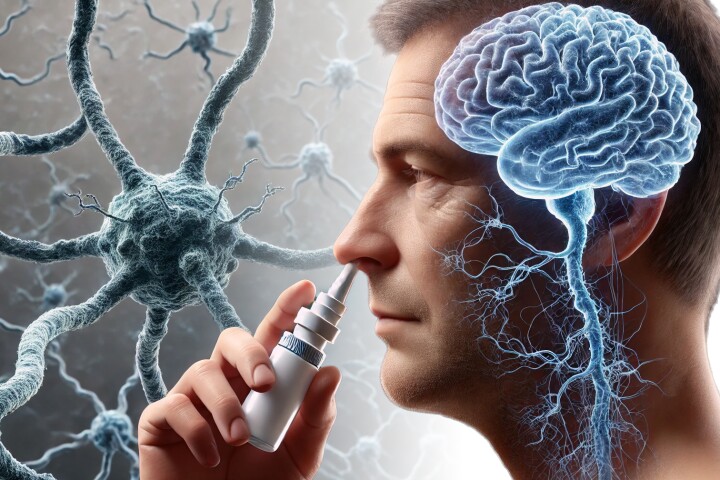Alzheimer's disease is a chronic neurodegenerative disease that most often begins in people over 65 years of age. Usually it starts slowly and continues to worsen over time until the sufferer succumbs to an increasing loss of memory, bodily functions and, eventually, death. Research has shown that there is an association with Alzheimer's and the accumulation of plaques that affect the neuronal connections in the brain. Now researchers at the University of Queensland have discovered a new way to remove these toxic plaques using a non-invasive form of ultrasound therapy.
Amyloid-β (Aβ) peptide – composed of some 36 to 43 amino acids – has been the plaque associated with the development and progression of Alzheimer’s disease for some time now. As such, some research into removing this toxic substance from human brains has been conducted, but almost invariably requires invasive pharmaceutical intervention which is far from completely effective.
The University of Queensland research, on the other hand, purports to offer a potential nonpharmacological approach for removing Aβ plaque. In support of this, the researchers claim to have restored memory function in the brain of a mouse that had Aβ deposited in its brain and displayed Alzheimer's symptoms.
To achieve this, the researchers used the application of multiple iterations of scanning ultrasound to the mouse brain to remove Aβ, and without requiring the use of any additional chemical agents, such as an anti-Aβ antibody. The researchers say that microloglial cells (cells that act as the main form of immune defense in the central nervous system) were activated by the high-frequncy sound waves generated by the ultrasonic equipment and consumed the Aβ plaques.
"This treatment restored memory function to the same level of normal healthy mice," says Professor Jürgen Götz, founding director and researcher at the University of Queensland's Brain Institute. "We’re also working on seeing whether this method clears toxic protein aggregates in neurodegenerative diseases other than Alzheimer’s and whether this also restores executive functions, including decision-making and motor control."
To confirm the efficacy of this treatment, the scientists used spinning disk confocal microscopy and high-resolution three-dimensional reconstruction to confirm that the ultrasound treatment had significantly reduced the extent of the Aβ toxic plaques.
"We’re extremely excited by this innovation of treating Alzheimer’s without using drug therapeutics," says Professor Götz. "The ultrasound waves oscillate tremendously quickly, activating microglial cells that digest and remove the amyloid plaques that destroy brain synapses. The word 'breakthrough' is often mis-used, but in this case I think this really does fundamentally change our understanding of how to treat this disease, and I foresee a great future for this approach."
Alzheimer’s affects more than two-thirds of dementia patients, and according to Alzheimer's Disease International, Dementia, including Alzheimer’s disease, currently affects more than 35 million people worldwide, with this number expected to double by 2030 and then more than triple to 115 million by 2050.
"With an aging population placing an increasing burden on the health system, an important factor is cost, and other potential drug treatments using antibodies will be expensive," says Professor Götz. "In contrast, this method uses relatively inexpensive ultrasound and microbubble technology which is non-invasive and appears highly effective."
"The approach is able to temporarily open the blood-brain barrier, activating mechanisms that clear toxic protein clumps and restoring memory functions," adds Professor Götz. "With our approach the blood-brain barrier’s opening is only temporary for a few hours, so it quickly restores its protective role."
The researchers are now working on a large ultrasound machine that would allow the treatment to be tested on the brains of sheep, ahead of human trials which are expected to be at least two years away.
The results of this research were published recently in the journal Science Translational Medicine.
Source: University of Queensland




